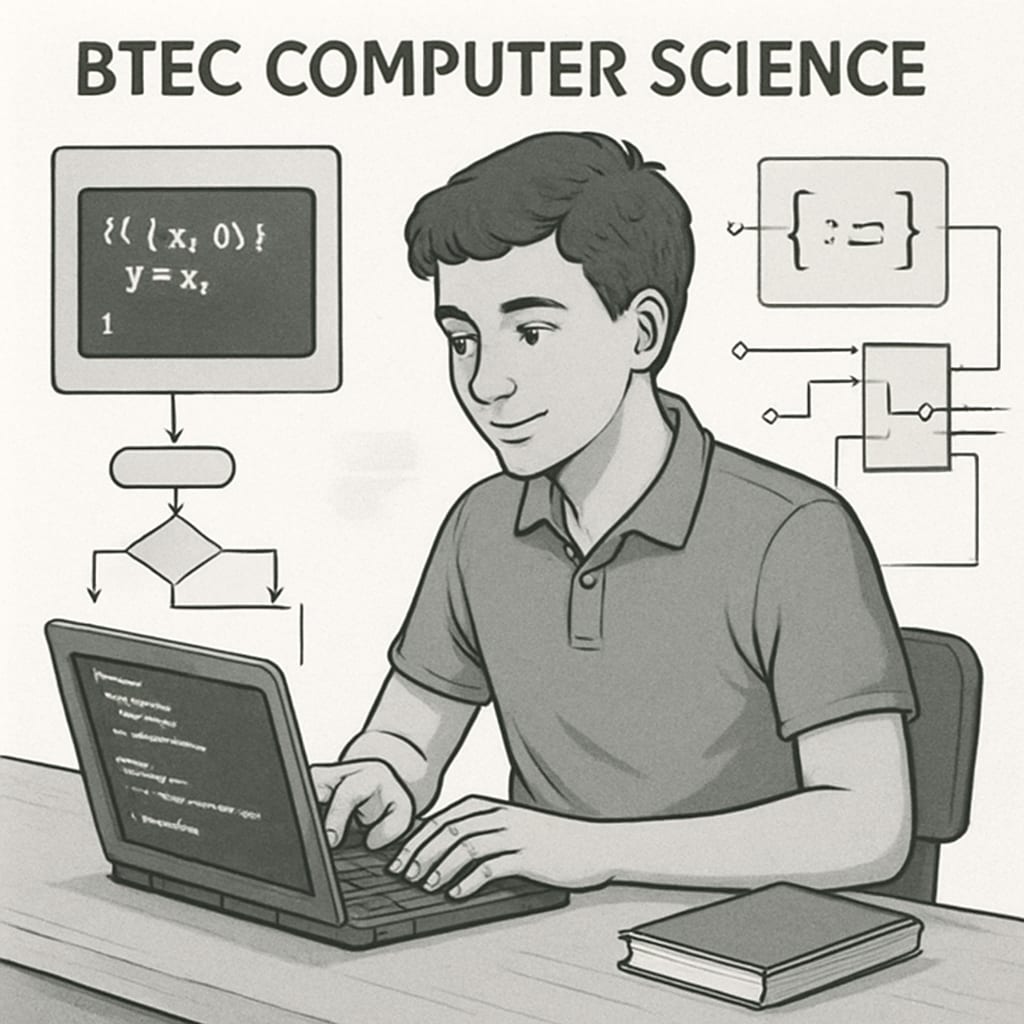BTEC Computer Science qualifications and A-levels are two popular routes for students aiming to pursue higher education or enter the workforce. Both offer unique advantages in university applications and career development. However, understanding their differences can help students make informed decisions about their academic and professional pathways. In this article, we will delve into the benefits of each qualification and provide practical advice on leveraging extracurricular activities to enhance your resume for university or apprenticeship applications.
What Makes BTEC Computer Science Stand Out?
BTEC (Business and Technology Education Council) qualifications are vocationally focused and designed to provide hands-on, practical experience. Unlike A-levels, which are primarily academic, BTEC courses emphasize applying theoretical knowledge to real-world scenarios. This makes BTEC Computer Science an excellent choice for students interested in entering the workforce directly after school or pursuing specialized career paths.
Key advantages of BTEC Computer Science include:
- Practical Skills: Students gain industry-relevant skills, such as programming, database management, and problem-solving.
- Workplace Readiness: BTEC qualifications often include internships or project-based learning, fostering workplace competencies.
- Flexibility: BTEC courses allow students to focus on specific areas of interest within computer science.

Academic Rigor with A-levels
A-levels are widely recognized by universities and are often considered the traditional route for academic advancement. They provide a strong theoretical foundation, which is particularly valuable for students planning to study computer science at top-tier universities. A-levels also allow students to explore multiple subjects, offering a broader educational scope compared to the specialized nature of BTECs.
Why A-levels might be the right choice:
- University Recognition: A-levels are highly regarded by universities, making them ideal for students aiming for competitive academic programs.
- Critical Thinking: Theoretical coursework helps develop analytical and problem-solving skills.
- Subject Breadth: Students can study complementary subjects like mathematics or physics alongside computer science.

Choosing the Right Path for Your Goals
The decision between BTEC Computer Science and A-levels depends on your long-term goals. If you want a hands-on approach and aim to enter the workforce or pursue apprenticeships, BTEC may be the ideal choice. On the other hand, if your goal is academic excellence and attending a prestigious university, A-levels could better align with your aspirations.
To enhance your profile regardless of the qualification, consider these strategies:
- Extracurricular Activities: Participate in coding competitions, hackathons, or computer science clubs to showcase your passion and skills.
- Work Experience: Internships or part-time jobs in tech-related fields can significantly boost your resume.
- Certifications: Obtain certifications in programming languages or tools like Python, Java, or SQL.
Conclusion: Balancing Academic and Practical Skills
Both BTEC Computer Science and A-levels offer distinct advantages. While BTEC focuses on practical and vocational skills, A-levels provide academic rigor and broader subject exposure. Ultimately, aligning your choice with your career goals and enhancing your profile through extracurricular activities, internships, and certifications will set you up for success in university applications and the workforce.
For further information on BTEC qualifications, you can explore the BTEC on Wikipedia. To understand A-levels better, visit A-levels on Wikipedia.
Readability guidance: This article uses concise paragraphs, lists to summarize key points, and avoids overly technical jargon to maintain accessibility for students and parents.


